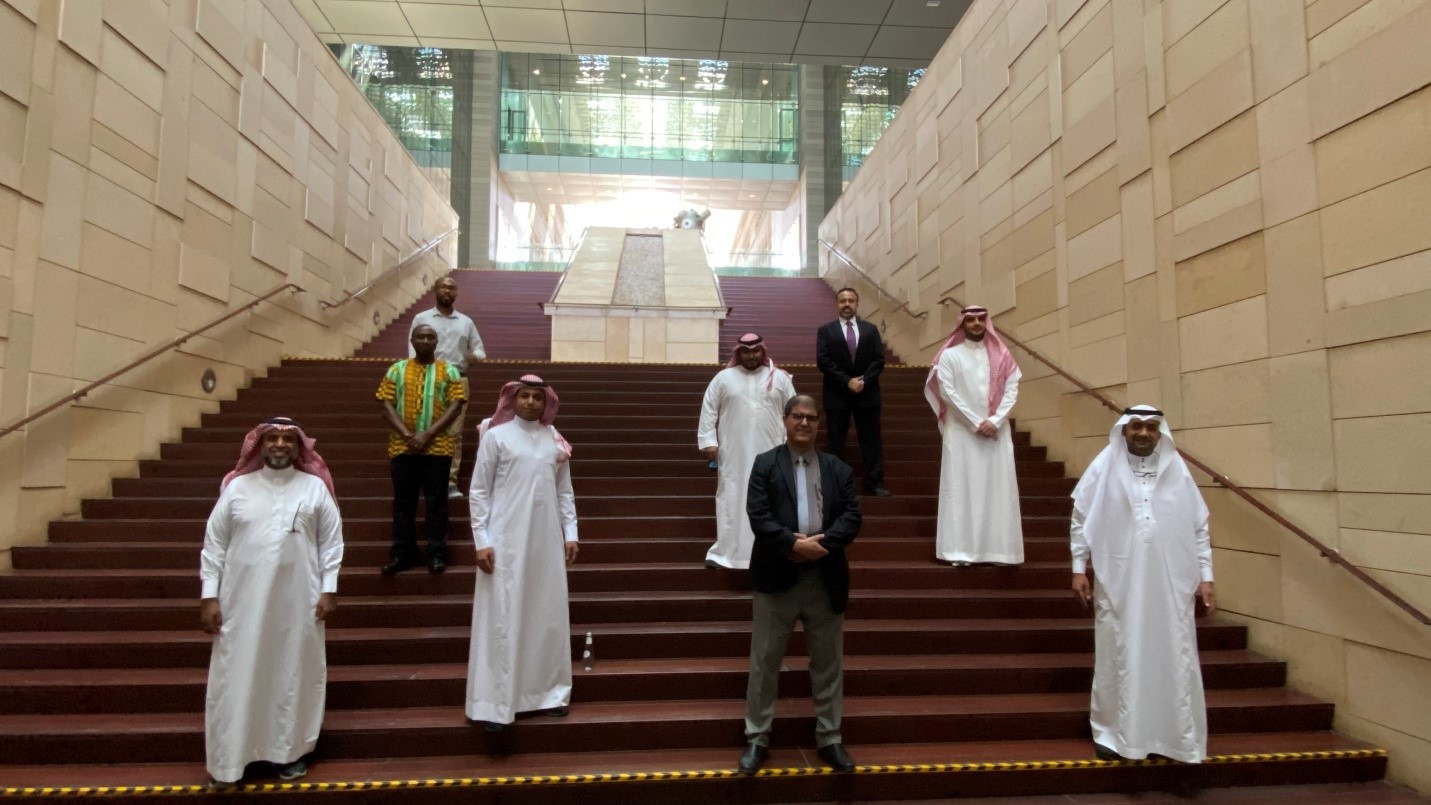Leading the way in radiation protection

Workshop participants assembled on KAUST campus (left to right) back row: Lamont Jones, Marcos Aguilar, middle row: Augustine Essel, Mohammed Farran, Yazeed Al-Ashban, and front row: Mohammad Bahmaid, Nasser Shubayr, Mehanna Arib, and Abdulkadir Al-Aydarous. KAUST file photo.
The Health, Safety and Environment (HSE) department at KAUST recently hosted a one-day webinar on radiation protection and safety in research, industry and medicine, in cooperation with the Nuclear and Radiological Regulatory Commission (NRRC). The aim was for experts to share their knowledge to help promote a radiation protection culture across related disciplines.
KAUST is the only university in the Kingdom conducting research using open radioactive sources such as Tritium (H-3) and Carbon-14 (long-lived isotopes) and Phosphorus-33 (short-lived isotope) in a dedicated radiation labeling laboratory with a comprehensive isotopes usage accounting and radioactive waste management system.
Speakers provide deep expertise
As such, Marcos Aguilar, the Research Safety Lead at HSE, delivered a presentation on research safety in KAUST laboratories. Mohammad Bahmaid then provided an overview of KAUST Radiation Safety Program and how it is managed and operated in compliance with NRRC regulations.
The other invited speakers represented various government and academic institutions such as the Ministry of Health, Nuclear and Radiological Regulatory Commission, King Abdulaziz City for Science and Technology, King Saud University, King Abdulaziz University, Jazan University and King Faisal Specialist Hospital and Research Center.
Mohammad Farran from NRRC talked about the legislative and regulatory basis for radiation protection in Saudi Arabia, as well as the national nuclear and radiological emergency response organization and the national early notification network system.
Dr. Musaed Almalki described in detail the radiation safety program at Ministry of Health including personal dosimetry, radiological survey, radiation emergency, training and education, and quality.
Engaging outside the Kingdom
The webinar was broadcast live to approximately 400 attendees from 16 different countries including Saudi Arabia, Albania, Bulgaria, the United Kingdom, Malaysia, the United States, India, Egypt, Iraq, Jordan, Kuwait, Qatar, Bahrain, Yemen, the United Arab Emirates and Algeria.
For more detailed on the webinar program and invited speakers, please visit the webinar website on the following link: https://rpsm.kaust.edu.sa
Related:
- President Chan's address on community testing
- Transforming logistics using digitization and AI
- KAUST and Johnson & Johnson sign dengue fever research collaboration agreement

